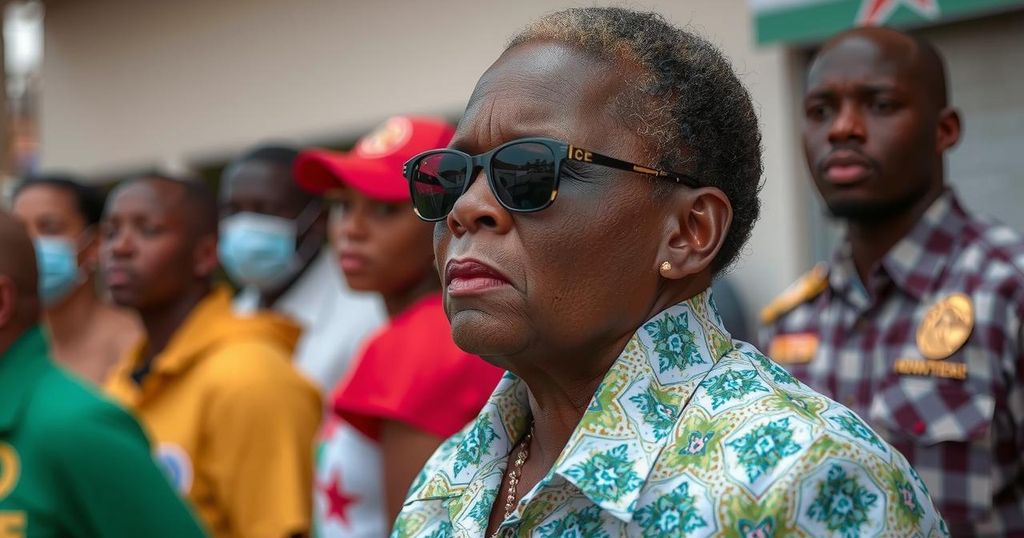Maputo Faces Unrest and Shortages Following Controversial Elections

Maputo, Mozambique, is struggling to return to normalcy following post-election violence that led to widespread looting and safety fears. The ruling party’s controversial electoral victory has resulted in food, fuel, and medicine shortages, while a significant prison escape has fueled anxiety among residents. Local neighborhoods are forming patrols for protection despite the absence of confirmed criminal activity.
The capital of Mozambique, Maputo, is gradually recovering from the chaos following post-election violence, yet residents remain in a state of fear due to rampant looting and vandalism. The unrest was ignited by the announcement of the ruling Frelimo party’s contested electoral victory, which has resulted in shortages of food, fuel, and medicine in the city. The alarming escape of over 1,000 inmates from a maximum-security prison has intensified security concerns, leading to the establishment of local patrols.
Maria Amelia, a resident of Matola, shared her distress, recounting a situation where she was warned of armed men in her neighborhood. “I saw my neighbors, armed with knives to defend themselves against these invaders,” she said. Meanwhile, bank worker Armand Tembe expressed similar apprehensions about the growing uncertainty: “It’s starting to get scary. I don’t know where the country is going.” Amidst this atmosphere of fear, many residents reported no actual sightings of criminals yet felt compelled to unite for protection.
Borges Nhamirre, a researcher based in Pretoria, noted the lack of verified reports regarding attacks by criminals amid the unrest. He mentioned that remarks from the police chief concerning detainee movements have exacerbated public fears, suggesting that the events might have been manipulated by the government to mitigate civil disorder. Opposition leader Venancio Mondlane has strongly denounced the results of the October 9 election, characterizing them as fraudulent.
The confirmation of Frelimo’s victory by the highest court has led to significant riots, claiming over 125 lives as reported by local NGOs. While makeshift barricades in Maputo are slowly being removed and military forces clear roads, residents cautiously venture outside to procure necessities. With bakeries closed for several days and grocery stores shuttered, Isabel Rocha lamented the dire food situation in the Laulane district. Further compounding the issues, petrol stations are facing a fuel shortage. Tomas Panguene described his struggle to find medication, highlighting the extensive challenges the city’s populace faces in securing basic supplies during this turmoil.
The backdrop of this disturbing situation is rooted in the recent political unrest following the controversial elections held on October 9, which reasserted the dominance of the Frelimo party in Mozambique. Frelimo has been in power for half a century, yet its electoral practices have come under scrutiny, with opposition leaders accusing the party of systemic fraud. The aftermath of the election has resulted in widespread protests and violence, leading to significant casualties and a worsening humanitarian situation characterized by food and medical shortages in the capital, Maputo. The prison break incident further exacerbates the community’s fears, bringing issues of personal safety and public order to the forefront.
In conclusion, while Maputo is gradually returning to a semblance of normalcy, the lingering fears and uncertainties significantly impact the residents’ daily lives, highlighted by reports of looting, shortages of essential goods, and concerns over personal safety. The political context following the recent elections continues to stir unrest, suggesting ongoing societal tensions that may require substantive attention from local authorities to restore order and public confidence.
Original Source: www.barrons.com







